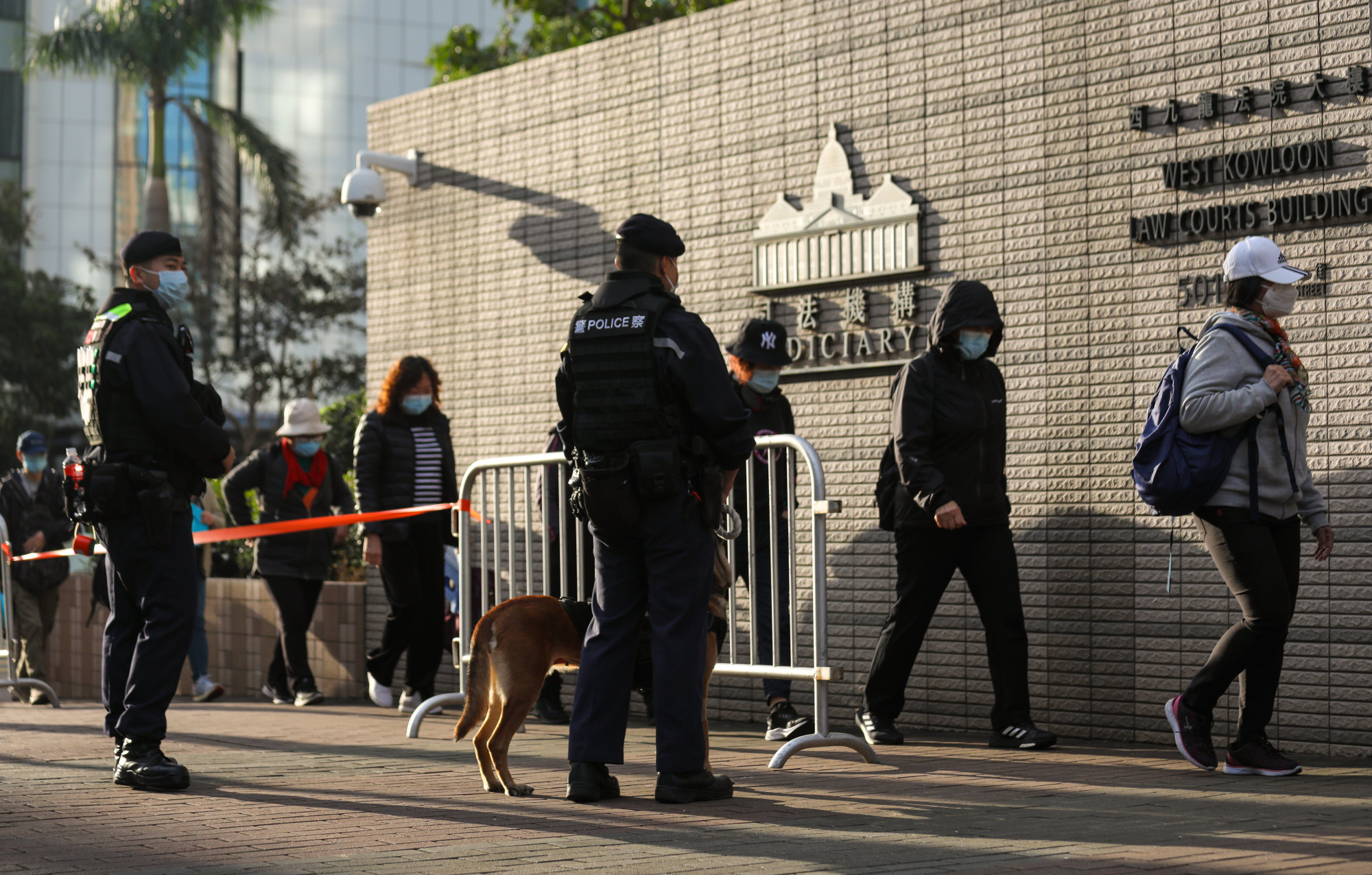
Hong Kong tycoon Jimmy Lai ordered staff to publish ‘pro-resistance’ articles on now-closed Apple Daily newspaper’s website to boost US readership, former publisher tells court
- Cheung Kim-hung says Lai was ‘desperate’ to launch English language Apple Daily as Beijing prepared to impose national security law on city in 2020
- He alleged Lai hoped the English version would ‘allow American readers to become the lever between Apple Daily and politics’
“He hoped Apple Daily English would turn to the US and allow the American readers to become the lever between Apple Daily and politics.”

Hong Kong court rejects bid by Jimmy Lai to block witness’ ‘irrelevant’ evidence
Lai, 76, denies two conspiracy charges of collusion with foreign forces and a third count of conspiracy to print and distribute seditious publications, brought under colonial-era legislation.
He and two others cut a deal to appear as prosecution witnesses in exchange for more lenient sentences.
Prosecutors have alleged Lai was the mastermind of an anti-China conspiracy linked to Apple Daily, where he had complete control over its editorial policies.
Cheung on Thursday told the court that the tycoon had highlighted the need for Chinese articles selected for translation and publication on the new edition to be consistent with Apple Daily’s views.
“They had to be on the ‘yellow’ side,” he said.
Yellow was the colour favoured by those who supported or sympathised with 2019 protesters.
Jimmy Lai gave generously to Hong Kong opposition and US groups, court hears
“We didn’t want articles that were ‘pro-China’ … For example, we needed those which were pro-resistance, anti-establishment and supportive of [foreign] sanctions,” Cheung said.
He added that Lai had attempted to provoke further discussions about Beijing’s “oppression” of Hong Kong by launching the “Live Chat with Jimmy Lai” series, which featured the tycoon and prominent overseas academics and politicians, after the national security law took effect in June 2020.
The court heard the interviews, live-streamed on Apple Daily’s digital platforms, mainly focused on the Beijing-imposed legislation’s impact on the city’s rule of law and its status as a financial hub, as well as the importance of foreign intervention.
Chan, the city’s chief secretary from 1993 to 2001, was said to have told Pence about her concerns for Hong Kong’s human rights and freedom as the city government appeared determined to press ahead with an extradition bill, which was later dropped.
The court heard Apple Daily ran a headline story about Chan’s visit on March 24. Its digital edition highlighted it as that day’s top story on the newspaper’s webpage.
Cheung said the in-depth coverage was the result of a suggestion first made to Lai by James Cunningham, the US consul general in Hong Kong from 2005 to 2008.
WhatsApp messaging logs submitted to the court suggested Cunningham had advised Chan on the topics she should focus on in her brief meeting with Pence.
“I had a good talk with Anson – she is quite concerned about the extradition law, [and] is fully aware of the need to defeat it,” the US diplomat was said to have told Lai in a message later forwarded to Chueng on WhatsApp.
“I advised her to make it a core element of her discussions on the Hill and the [national security council] … The bill is a danger to all in [Hong Kong].”
He added the two had been “searching for a rationale for international opposition to Beijing in general, and extradition in particular”.
Kwok, who has moved to the US, is at present wanted by police for an alleged national security offence.
The trial continues on Friday.
